第70章
All things pass, even the self-inflicted sufferings of shy young men, condemned by temperament to solitude. Came the winter evenings, I took to work: in it one may drown much sorrow for oneself. With its handful of fire, its two candles lighted, my "apartment" was more inviting. I bought myself paper, pens and ink. Great or small, what more can a writer do? He is but the would-be medium: will the spirit voices employ him or reject him?
London, with its million characters, grave and gay; its ten thousand romances, its mysteries, its pathos, and its humour, lay to my hand.
It stretched before me, asking only intelligent observation, more or less truthful report. But that I could make a story out of the things I really knew never occurred to me. My tales were of cottage maidens, of bucolic yeomen. My scenes were laid in windmills, among mountains, or in moated granges. I fancy this phase of folly is common to most youthful fictionists.
A trail of gentle melancholy lay over them. Sentiment was more popular then than it is now, and, as do all beginners, I scrupulously followed fashion. Generally speaking, to be a heroine of mine was fatal. However naturally her hair might curl--and curly hair, I believe, is the hall-mark of vitality; whatever other indications of vigorous health she might exhibit in the first chapter, such as "dancing eyes," "colour that came and went," "ringing laughter,"
"fawn-like agility," she was tolerably certain, poor girl, to end in an untimely grave. Snowdrops and early primroses (my botany I worked up from a useful little volume, "Our Garden Favourites, Illustrated") grew there as in a forcing house; and if in the neighbourhood of the coast, the sea-breezes would choose that particular churchyard, somewhat irreverently, for their favourite playground. Years later a white-haired man would come there leading little children by the hand, and to them he would tell the tale anew, which must have been a dismal entertainment for them.
Now and then, by way of change, it would be the gentleman who would fall a victim of the deadly atmosphere of my literature. It was of no particular consequence, so he himself would conclude in his last soliloquy; "it was better so." Snowdrops and primroses, for whatever consolation they might have been to him, it was hopeless for him to expect; his grave, marked by a rude cross, being as a rule situate in an exceptionally unfrequented portion of the African veldt or amid burning sands. For description of final scenery on these occasions a visit to the British Museum reading-room would be necessary.
Dismal little fledgelings! And again and again would I drive them from the nest; again and again they fluttered back to me, soiled, crumpled, physically damaged. Yet one person had admired them, cried over them--myself.
All methods I tried. Sometimes I would send them forth accompanied by a curt business note of the take-it-or-leave-it order. At other times I would attach to it pathetic appeals for its consideration.
Sometimes I would give value to it, stating that the price was five guineas and requesting that the cheque should be crossed; at other times seek to tickle editorial cupidity by offering this, my first contribution to their pages, for nothing--my sample packet, so to speak, sent gratis, one trial surely sufficient. Now I would write sarcastically, enclosing together with the stamped envelope for return a brutally penned note of rejection. Or I would write frankly, explaining elaborately that I was a beginner, and asking to be told my faults--if any.
Not one found a resting place for its feet. A month, a week, a couple of days, they would remain away from me, then return. I never lost a single one. I wished I had. It would have varied the monotony.
I hated the poor little slavey who, bursting joyously into the room, would hold them out to me from between her apron-hidden thumb and finger; her chronic sniff I translated into contempt. If flying down the stairs at the sound of the postman's knock I secured it from his hands, it seemed to me he smiled. Tearing them from their envelopes, I would curse them, abuse them, fling them into the fire sometimes; but before they were more than scorched I would snatch them out, smooth them, reread them. The editor himself could never have seen them; it was impossible; some jealous underling had done this thing.
I had sent them to the wrong paper. They had arrived at the inopportune moment. Their triumph would come. Rewriting the first and last sheets, I would send them forth again with fresh hope.
Meanwhile, understanding that the would-be happy warrior must shine in camp as well as field, I sought to fit myself also for the social side of life. Smoking and drinking were the twin sins I found most difficulty in acquiring. I am not claiming a mental excellence so much as confessing a bodily infirmity. The spirit had always been willing, but my flesh was weak. Fired by emulation, I had at school occasionally essayed a cigarette. The result had been distinctly unsatisfactory, and after some two or three attempts, I had abandoned, for the time being, all further endeavour; excusing my faint-heartedness by telling myself with sanctimonious air that smoking was bad for growing boys; attempting to delude myself by assuming, in presence of contemporaries of stronger stomach, fine pose of disapproval; yet in my heart knowing myself a young hypocrite, disguising physical cowardice in the robes of moral courage: a self-deception to which human nature is prone.
So likewise now and again I had tasted the wine that was red, and that stood year in, year out, decanted on our sideboard. The true inwardness of St. Paul's prescription had been revealed to me; the attitude--sometimes sneered at--of those who drink it under doctor's orders, regarding it purely as a medicine, appeared to me reasonable.